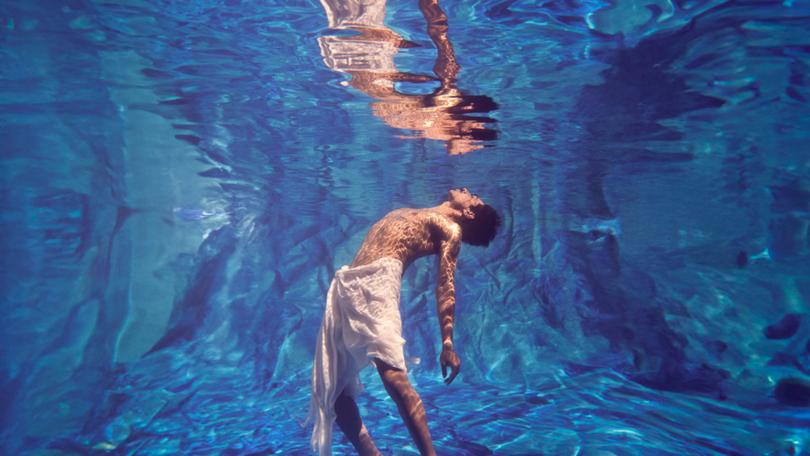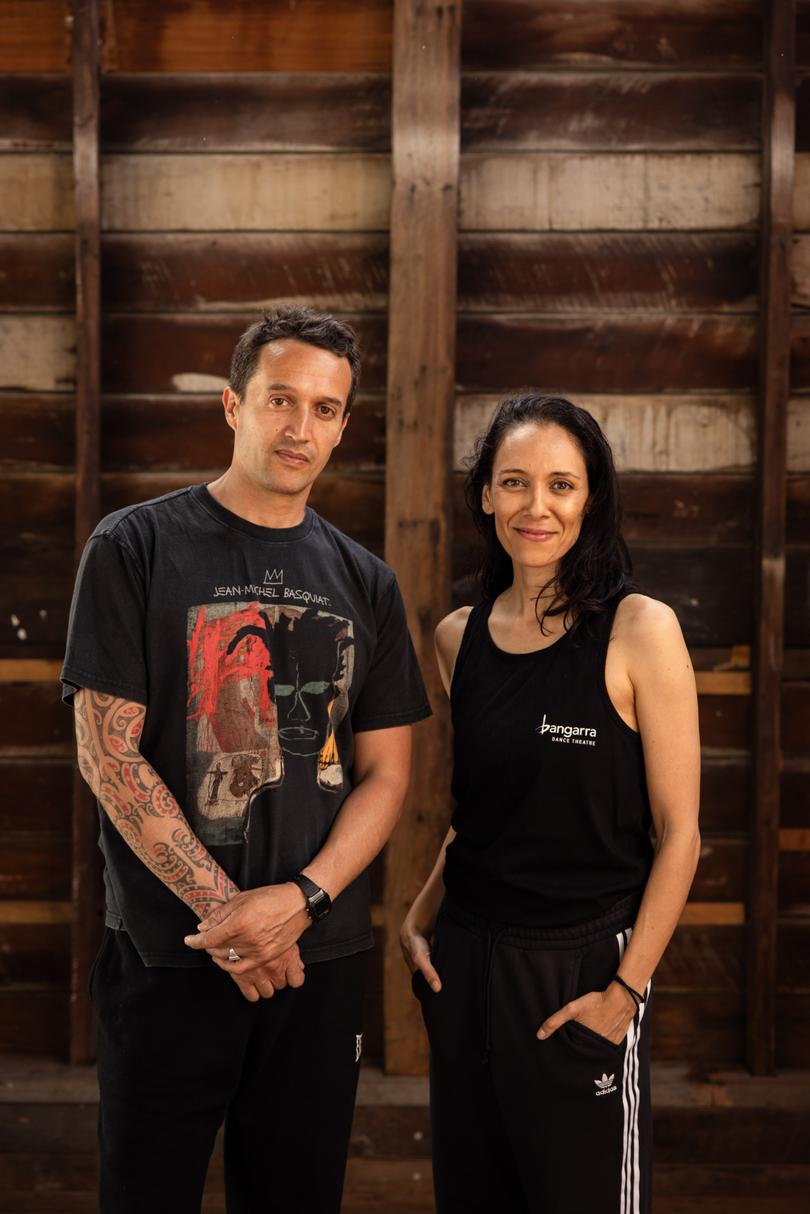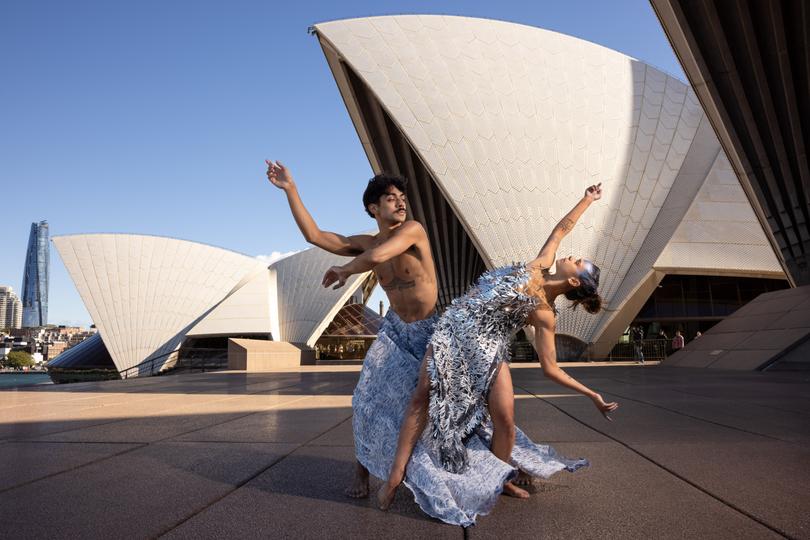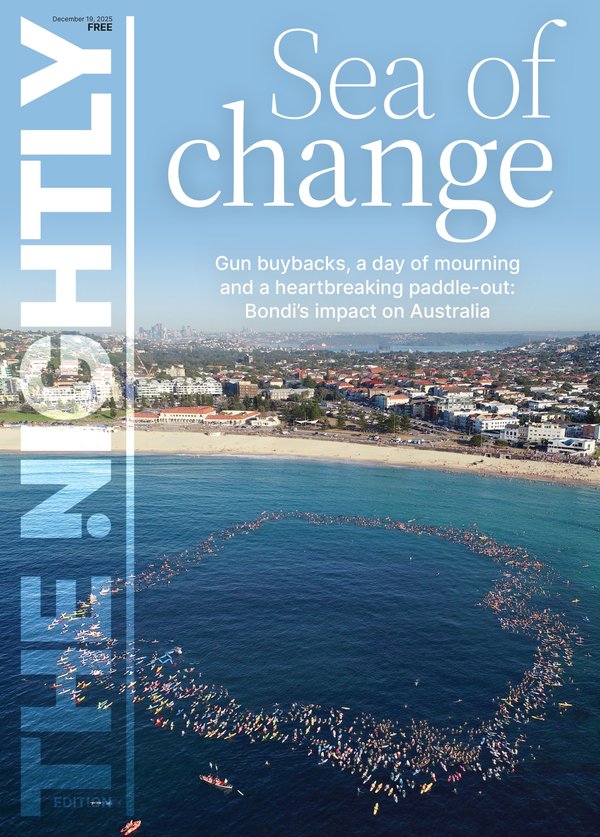Bangarra Dance Theatre’s Horizon reflects the cultural exchange of Australia’s history and present

Cultural exchange is not new to Deborah Brown. A choreographer for the Bangarra Dance Theatre, she is a descendant of Wakaid Clan, Badu Island, and the Meriam people of Murray Island in the Torres Strait.
Across her ancestral lands, evidence of trade with Asian nations and Pacific Islands predates European colonisation.
So, it’s fitting that Brown is one of the key creative forces behind Horizon, Bangarra’s first collaboration with a Māori artist from Aotearoa, Moss Te Ururangi Patterson.
Sign up to The Nightly's newsletters.
Get the first look at the digital newspaper, curated daily stories and breaking headlines delivered to your inbox.
By continuing you agree to our Terms and Privacy Policy.Horizon is currently playing in Brisbane on its national tour, and will next hit Melbourne after already dazzling Sydney. The production is split into two acts — the first is Kulka, choreographed by Sani Townson, the second is The Light Inside which is by Brown and Patterson.
Brown’s half of The Light Inside is called Salt Water, and draws from Zenadth Kes, another name for the Torres Strait. Brown evokes her ancestral home’s connection to sea, sky and land, and the multiplicities of a rich place.
She talks about the duality of the Torres Strait, which is reflected in Horizon and in herself.

“When I first met Moss, there was a male and female energy. Then there we were talking salt water and fresh water, then there was matriarchal and patriarchal.
“And when we got into it, we started talking about the word ‘navigator’ – we were navigating the studio, the choreography and the dance, but it’s because we come from seafaring people, and you are looking at the sky and the water.
“It’s the duality of the mirror reflection between the sky and the sea.”
There’s also the duality within Brown, who also has Scottish heritage, of carrying her culture and living in the suburbs of Brisbane. “I’m very proud of my culture and identity, but I wasn’t raised on country, and so there are things that I’m still learning in my 40s that I’m really fascinated by, so it’s accepting that,” she says.
Brown said the piece she created is a metaphor for how she’s not just one colour — and she doesn’t mean that in the sense of having a white father and a black mother.
“It’s the diversity within ourselves, within our own bodies as people,” she explains. “I feel bad sometimes, wondering if I’m a walking contradiction but you just have to live with that, don’t you? It’s a sort of unity.”
Sometimes duality is mistaken for binary, but duality is about how different things don’t have to be in conflict.
Brown also has ancestors that have come from Singapore and Samoa, and it’s all a part of her, just as many Australians are made up of bloodlines from across the world, a DNA cultural exchange.

If Horizon is the first collaboration between Bangarra and a First Nations artist from another culture, it doesn’t have to be the last.
“This story has been a very small seed,” Brown says. “I hope to continue to explore that kind of throughline somehow. It’s been nice to have the opportunity to collaborate with Moss and Maori culture because one day I’d love to be able to collaborate with a great Samoan artist.
“Or do I go back and look at my roots in Singapore? We even have DNA from the Philippines. What kind of language has been passed through that lineage?”
Brown had in 2017 toured a show in Japan and the director of the theatre there said they were able to see a relationship between the Japanese dance vocabulary and dance dialect with the Torres Strait.
She adds, “Thursday Island has a huge Japanese cemetery dedicated to the divers that have lost their lives up in the Torres Strait. You wonder what has been traded in terms of dance or language.”
And now the doors are open to further strengthen that cultural exchange.
Horizon is playing in Brisbane until August 17 and will open in Melbourne on August 28

